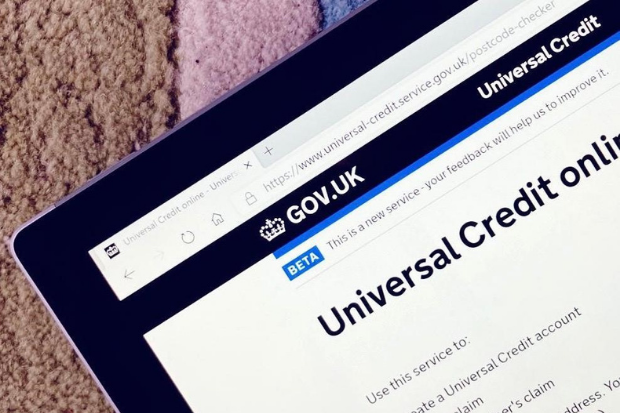Update from minister reveals that ‘feature-complete software’ should be ready within four weeks
Credit: Crown Copyright/Open Government Licence v3.0
A “feature-complete” version of the new online system for logging into all government services is due to be ready for public testing within four weeks.
Work on the One Login project, led by the Government Digital Service, began in September 2020. Once ready, the system will replace an existing patchwork of almost 200 separate accounts and 44 different login methods currently in use across various departments and services.
In October 2021, Chancellor of the Duchy of Lancaster Steve Barclay announced that – off the back of the creation of the unified sign-in platform – GDS would also build a GOV.UK smartphone app, through which citizens will be able to access a comprehensive range of services delivered across departments.
The spending review late last year committed at least £100m to support the development and support of the One Login system over the course of the three-year period beginning in April 2022. This includes £30m set aside for upfront capital costs, and £75m of resource funding to support day-to-day operations, according to correspondence sent to the Public Accounts Committee in November by Joanna Davinson, head of GDS sister agency the Central Digital and Data Office.
In a newly published update provided to another set of MPs – the Public Administration and Constitutional Affairs Committee – Barclay revealed that work on the login system “is on track to deliver a minimum viable product by 31 March 2022 [and] further features and services will then be added over the next three years”.
The MVP version that will be finalised in the coming weeks will be ready for testing by citizens, according to Barclay’s letter to PACAC.
Related content
- GOV.UK Verify to continue until 2023 with £11m-a-year funding
- Minister on plan for government digital tools that ‘serve users proactively – rather than reactively’
- Government says ‘lack of mandate’ contributed to muted Verify uptake
“One Login [is] a new system that will provide one way for users to sign in, prove their identity and access central government services online,” he wrote. “This work is on track for the public testing of feature-complete software to go live by 31 March 2022.”
The concept of a minimum viable product – meaning a version of a system that has enough features to users’ meet basic functional needs – is central to the principles of agile development.
The 10-point list of Government Design Principles, overseen by CDDO, features “iterate, then iterate again” as its fifth principle.
“The best way to build good services is to start small and iterate wildly,” the guidance adds. “Release minimum viable products early, test them with actual users, move from alpha to beta to live adding features, deleting things that don’t work and making refinements based on feedback. Iteration reduces risk. It makes big failures unlikely and turns small failures into lessons. If a prototype isn’t working, don’t be afraid to scrap it and start again.”
The document links out to the Wikipedia entry for minimum viable product, which defines the concept thus: “An MVP is a version of a product with just enough features to be usable by early customers who can then provide feedback for future product development. A focus on releasing an MVP means that developers potentially avoid lengthy and – ultimately – unnecessary work. Instead, they iterate on working versions and respond to feedback, challenging and validating assumptions about a product’s requirements.”
Giving in-person evidence to the Public Accounts Committee in September, GDS chief executive Tom Read said that the One Login project is striving to adopt a much more iterative approach than that used during the development of the little-loved GOV.UK Verify system that is one of the many existing sign-in systems the new unified platform is intended to replace.
“With the Verify programme, the technology approach and the overall design was baked in right at the beginning,” he said. “The founding principle was ‘we will use external providers to prove somebody’s identity, [who will] then just say “yes” or “no” back to the service… which is very good for protecting citizens’ data. But what wasn’t done is proper, iterative testing with real users to see if that worked – and we now know that that doesn’t work for around half of the users who use it.”
He added: “What we are doing instead is working with departments across government – with the front line of departments – to say: ‘let’s learn more about how your users work, and we will build a solution for that works for that set of those users’. Then we will go to the next set of users to see if that works and, if not, we will need to pivot and will need a slightly different solution. What we are seeing already is, if we had made technology decisions right at the beginning, we would be dead wrong already.”
Hear from GDS chief executive Tom Read who will discuss work on the new login system and the government’s digital plans for the next 10 years during an exclusive presentation at PublicTechnology Live. In addition to this keynote appearance, the CPD-certified event, which takes place on 29 March at London’s Business Design Centre and is free to attend for public sector professionals, also features speakers including HMRC CDIO Daljit Rehal, and head of civil service Fast Stream Sonia Pawson.




